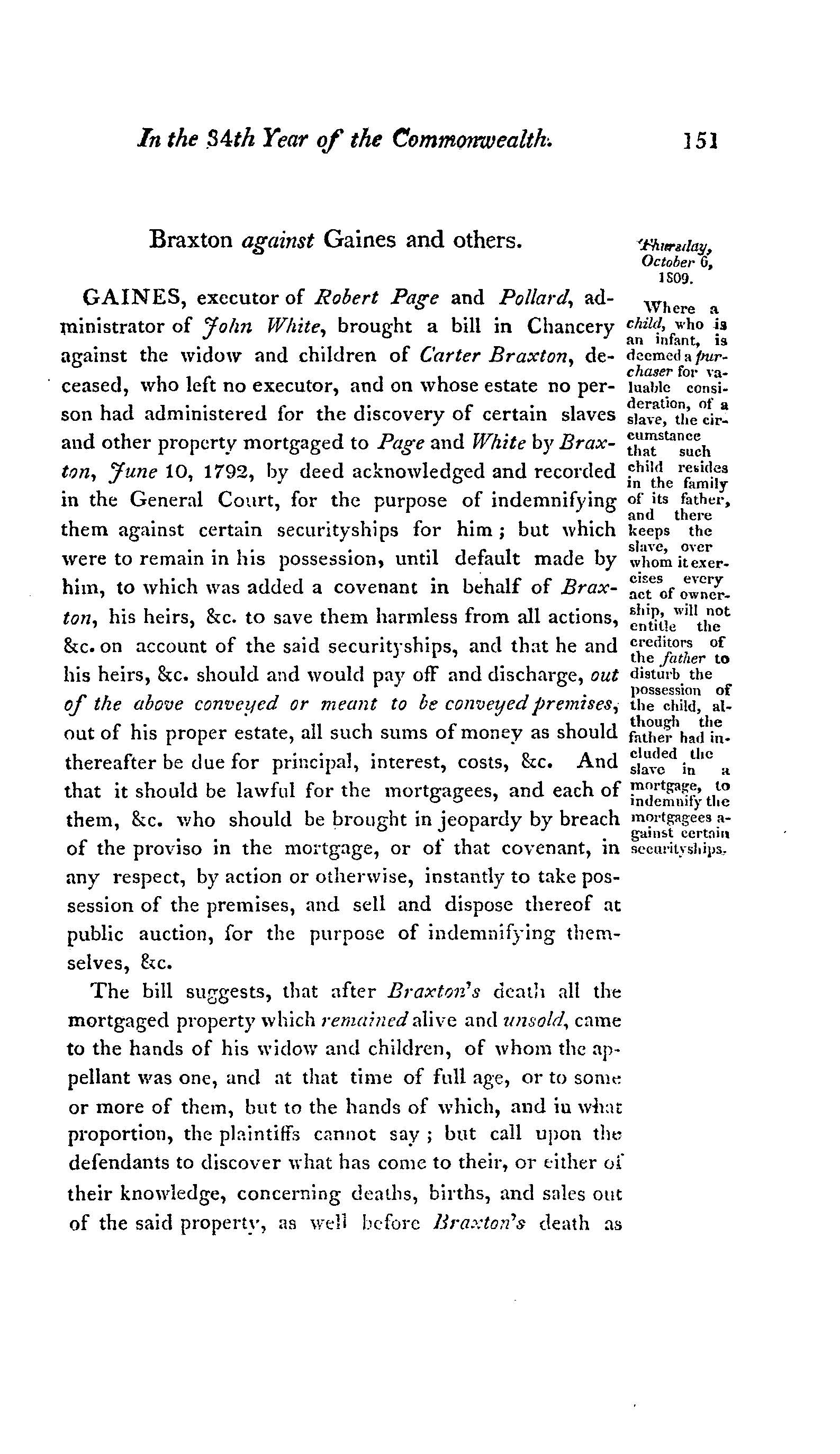Difference between revisions of "Braxton v. Gaines"
Mvanwicklin (talk | contribs) m |
Mvanwicklin (talk | contribs) m |
||
| Line 18: | Line 18: | ||
__NOTOC__ | __NOTOC__ | ||
[[Category: Cases]] | [[Category: Cases]] | ||
| + | [[Category: Inheritance]] | ||
[[Category: Slavery]] | [[Category: Slavery]] | ||
Latest revision as of 14:25, 30 July 2018

Braxton v. Gaines, 14 Va. (4 Hen. & M.) 151 (1809),[1] discussed whether the slave of a child, deemed a purchaser for a valuable consideration, but living with its father, entitled the father’s creditors to mortgage the slave to satisfy the father’s debt.
Background
Gaines, as an executor of Robert Page, sued Carter Braxton's widow and children over certain slaves and property believed to be mortgaged to the decedent. Elizabeth Corbin Braxton, the daughter of Carter Braxton, was in possession of a slave named Thamar and her two children. Elizabeth contended that her grandfather Richard Corbin had given her father a sum of money for her exclusive investment. Upon losing the money, Carter Braxton, in return, gave Elizabeth the slave. The issues before the court were whether Elizabeth, as a child, had sole possession of the slave and whether Thamar was a gift from her father or rather purchased through Elizabeth's investment money, making her a bona fide purchaser.
The Court's Decision
The late Chancellor Wythe decided that Braxton had no title to the slaves, and that the slaves should be sold by a Commission. The Court of Appeals reversed and found her to be a purchaser through the consideration from her grandfather.
See also
References
- ↑ William Hening and William Munford, Reports of Cases Argued and Determined in the Supreme Court of Appeal of Virginia: with Select Cases, Relating Chiefly to Points of Practice, Decided by the Superior Court of Chancery for the Richmond District, (Richmond: I. Riley, 1811), 4:151.